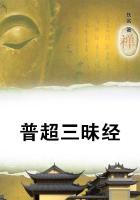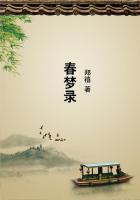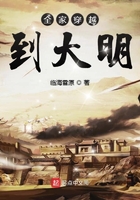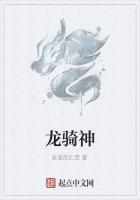During the year that I spent in Washington, and for some little time before this, there had been considerable agitation in the state of West Virginia over the question of moving the capital of the state from Wheeling to some other central point. As a result of this, the Legislature designated three cities to be voted upon by the citizens of the state as the permanent seat of government.
Among these cities was Charleston, only five miles from Malden, my home. At the close of my school year in Washington I was very pleasantly surprised to receive, from a committee of three white people in Charleston, an invitation to canvass the state in the interests of that city. This invitation I accepted, and spent nearly three months in speaking in various parts of the state.
Charleston was successful in winning the prize, and is now the permanent seat of government.
The reputation that I made as a speaker during this campaign induced a number of persons to make an earnest effort to get me to enter political life, but I refused, still believing that I could find other service which would prove of more permanent value to my race. Even then I had a strong feeling that what our people most needed was to get a foundation in education, industry, and property, and for this I felt that they could better afford to strive than for political preferment. As for my individual self, it appeared to me to be reasonably certain that I could succeed in political life, but I had a feeling that it would be a rather selfish kind of success--individual success at the cost of failing to do my duty in assisting in laying a foundation for the masses.
At this period in the progress of our race a very large proportion of the young men who went to school or to college did so with the expressed determination to prepare themselves to be great lawyers, or Congressmen, and many of the women planned to become music teachers; but I had a reasonably fixed idea, even at that early period in my life, that there was a need for something to be done to prepare the way for successful lawyers, Congressmen, and music teachers.
I felt that the conditions were a good deal like those of an old coloured man, during the days of slavery, who wanted to learn how to play on the guitar. In his desire to take guitar lessons he applied to one of his young masters to teach him, but the young man, not having much faith in the ability of the slave to master the guitar at his age, sought to discourage him by telling him:
"Uncle Jake, I will give you guitar lessons; but, Jake, I will have to charge you three dollars for the first lesson, two dollars for the second lesson, and one dollar for the third lesson. But I will charge you only twenty-five cents for the last lesson."
Uncle Jake answered: "All right, boss, I hires you on dem terms.
But, boss! I wants yer to be sure an' give me dat las' lesson first."
Soon after my work in connection with the removal of the capital was finished, I received an invitation which gave me great joy and which at the same time was a very pleasant surprise. This was a letter from General Armstrong, inviting me to return to Hampton at the next Commencement to deliver what was called the "post-graduate address." This was an honour which I had not dreamed of receiving. With much care I prepared the best address that I was capable of. I chose for my subject "The Force That Wins."
As I returned to Hampton for the purpose of delivering this address, I went over much of the same ground--now, however, covered entirely by railroad--that I had traversed nearly six years before, when I first sought entrance into Hampton Institute as a student. Now I was able to ride the whole distance in the train. I was constantly contrasting this with my first journey to Hampton. I think I may say, without seeming egotism, that it is seldom that five years have wrought such a change in the life and aspirations of an individual.
At Hampton I received a warm welcome from teachers and students.
I found that during my absence from Hampton the institute each year had been getting closer to the real needs and conditions of our people; that the industrial reaching, as well as that of the academic department, had greatly improved. The plan of the school was not modelled after that of any other institution then in existence, but every improvement was made under the magnificent leadership of General Armstrong solely with the view of meeting and helping the needs of our people as they presented themselves at the time. Too often, it seems to me, in missionary and educational work among underdeveloped races, people yield to the temptation of doing that which was done a hundred years before, or is being done in other communities a thousand miles away. The temptation often is to run each individual through a certain educational mould, regardless of the condition of the subject or the end to be accomplished. This was not so at Hampton Institute.
The address which I delivered on Commencement Day seems to have pleased every one, and many kind and encouraging words were spoken to me regarding it. Soon after my return to my home in West Virginia, where I had planned to continue teaching, I was again surprised to receive a letter from General Armstrong, asking me to return to Hampton partly as a teacher and partly to pursue some supplementary studies. This was in the summer of 1879. Soon after I began my first teaching in West Virginia I had picked out four of the brightest and most promising of my pupils, in addition to my two brothers, to whom I have already referred, and had given them special attention, with the view of having them go to Hampton. They had gone there, and in each case the teachers had found them so well prepared that they entered advanced classes. This fact, it seems, led to my being called back to Hampton as a teacher. One of the young men that I sent to Hampton in this way is now Dr. Samuel E. Courtney, a successful physician in Boston, and a member of the School Board of that city.














